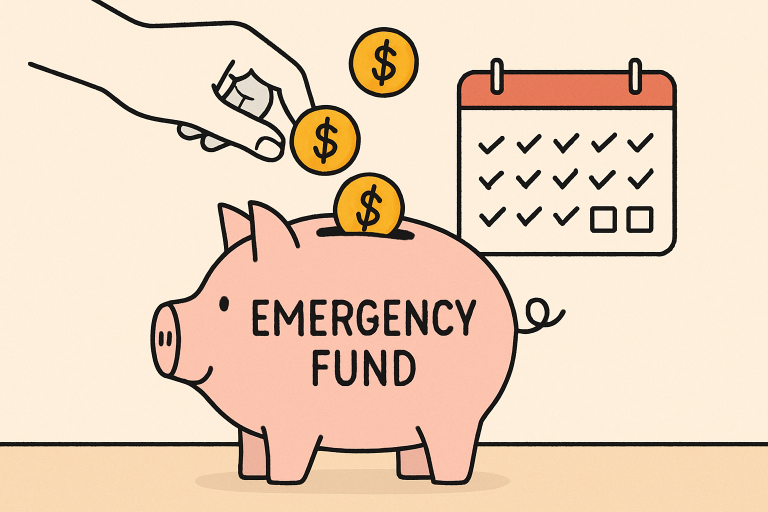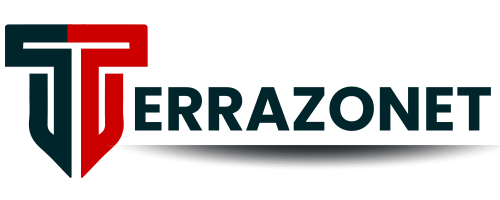Table of Contents
- Introduction
- Assess Your Financial Need
- Understand Borrowing Terms
- Create a Repayment Plan
- Avoid Rolling Over Debts
- Build an Emergency Fund
- Monitor Your Credit Score
- Seek Professional Advice
Introduction
Short-term loans offer quick access to needed cash when urgent financial situations arise, making them a popular option for people facing unexpected expenses. However, the speed and convenience of these loans come with risks if not managed carefully. Responsible loan management habits are critical for your financial stability and future. By adopting strategies for smart borrowing, you’ll be better positioned to handle repayments and avoid the cycles of debt that sometimes accompany these products. For guidance on navigating the world of short-term borrowing, MaxLend Loans is a valuable resource, helping borrowers make wise decisions every step. Whether handling a sudden medical bill or looking to ease budget strains, building intelligent loan habits will help you maintain and protect your financial wellbeing.
Assess Your Financial Need
The smartest borrowing decisions begin with a frank assessment of your financial circumstances. Ask yourself if the expense you’re facing is necessary and urgent, such as a car repair that enables you to get to work, or a medical procedure that can’t be postponed. If the purchase or bill isn’t truly essential, weigh whether it might be delayed or funded differently. Consider alternatives before taking out a loan: Can you dip into savings, negotiate a payment plan with a service provider, or temporarily borrow from friends or family? Taking these steps before resorting to a short-term loan often results in less debt to handle and fewer financial headaches later. If you decide borrowing is unavoidable, calculate the smallest amount needed and stick to that limit. Responsible borrowers regularly rethink their needs to avoid falling into a pattern of unnecessary debt, keeping both expenses and stress under control over time.
Understand Borrowing Terms
It’s crucial to fully understand the loan contract before accepting any funds. Short-term loans frequently involve higher-than-average interest rates and may carry significant fees if payments are missed or delayed. Carefully read all details about the interest rate and whether it’s fixed or variable. Look for upfront origination fees or late payment penalties, both of which can dramatically increase your total repayment cost. Pay special attention to the payment schedule—is the loan due in one lump sum or in installments? Are payments required weekly, biweekly, or monthly? Know the final due date, also known as the ‘maturity date,’ to avoid costly mistakes. Some lenders employ complex language or fine print to disguise extra costs, so don’t hesitate to request clarification or more information. By educating yourself on every aspect of the agreement, you’ll be positioned to steer clear of unpleasant surprises and avoid stacking up unmanageable debt. Government resources like the Consumer Financial Protection Bureau (CFPB) can help demystify loan terms, empowering you to make truly informed decisions.
Create a Repayment Plan
Innovative loan management begins with ensuring you can repay what you borrow—on time and in full. Once you apply online for a MaxLend loan, you must revisit and adjust your household budget to reflect this new financial commitment. List essential monthly expenses like rent, utilities, groceries, and transportation, then factor in your loan payment amount and due date. Align these with your income, and if there’s a mismatch, consider setting aside funds early or using calendar alerts. Tools like budgeting apps or automated reminders can help you stay on track. For those with variable income—gig workers or freelancers—try making extra payments during higher-earning months to reduce interest. On-time payments protect your credit and minimize late fees, helping secure financial stability.
Avoid Rolling Over Debts
Rollover options can seem attractive when facing financial pressure, but extending a short-term loan by “rolling over” is one of the costliest habits a borrower can develop. When a loan is rolled into a new cycle, fresh interest and substantive fees are added, causing your balance to balloon rapidly. What might have started as a manageable expense can become a financial trap, making it increasingly hard to break free of debt. Whenever possible, repay your loan within the original term, even if it requires extra belt-tightening or cutting back on non-essential spending in the short run. Open communication with your lender can sometimes yield hardship programs or payment modifications that help you avoid rollovers. The Federal Trade Commission offers insights on the dangers of repeated extensions and outlines resources for consumers facing debt challenges. Choosing not to rollover a loan is fundamental to breaking the cycle of debt and restoring your financial health.
Build an Emergency Fund
Reliance on short-term loans frequently drops when you have your own financial buffer available. Building an emergency fund—even a small one—protects you from needing to borrow during everyday setbacks like car troubles, appliance replacements, or medical bills. Begin by striving for $500 to $1,000, then grow your reserve as you’re able. Set up a separate savings account, ideally one that isn’t linked to your checking account, to reduce temptation. Automate transfers, even if modest, to steadily build your fund. When you reach a savings milestone, celebrate your progress and aim higher. The discipline of preserving this account for genuine emergencies only will help you avoid unplanned debt and offer peace of mind. If you’re unsure where to start, seek tips from reputable sources, which provide practical guidance on forming and maintaining an emergency savings routine.

Monitor Your Credit Score
Credit health is a major factor in loan accessibility and the interest rates for future borrowing. Stay proactive by monitoring your score regularly. Review your credit report for inaccuracies, unfamiliar accounts, or unrecorded on-time payments. Many short-term loans are reported to credit bureaus, so every timely payment can boost your standing, while any missed or late payments can do significant harm. Detecting errors or fraud early lets you correct them before they impact your finances. Free annual credit reports are available from all major credit bureaus through AnnualCreditReport.com. Understanding your credit profile helps you identify areas for improvement, anticipate lending decisions, and avoid unwelcome surprises if you need to borrow again in the future.
Seek Professional Advice
When you find yourself relying on short-term loans frequently or feeling overwhelmed by debt, seeking professional support is a proactive and wise step. Nonprofit credit counselors and certified financial advisors can evaluate your unique circumstances, explain tailored options, and help you develop a repayment or debt consolidation strategy. These pros can also negotiate with creditors on your behalf and connect you with helpful resources or assistance programs. Reputable financial counseling agencies often provide their services for free or at minimal cost, offering judgment-free advice to put you back on the path toward financial stability. Find trusted help through organizations, which can recommend certified counselors in your area. Taking the step to consult a professional can mean the difference between ongoing financial stress and lasting peace of mind.
By adopting these practical habits, you can confidently manage short-term loans, prevent persistent debt, and protect the health of your finances for the future. Every careful borrowing decision you make now helps lay the groundwork for improved security, financial freedom, and long-term peace of mind.
READ ALSO: Kennedy Funding Ripoff Report: Separating Fact from Fiction?











